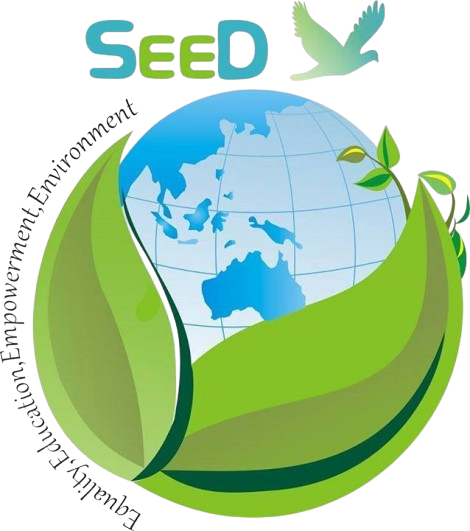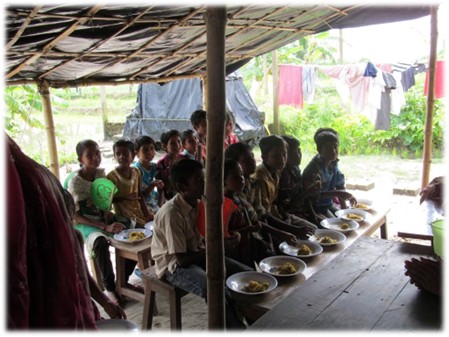






The Lodhas, a Particularly Vulnerable Tribal Group (PVTG) in West Bengal, are descendants of Denotified Tribes, historically subjected to deep social stigma and exclusion. Living in remote areas, they face multi-dimensional deprivation: high illiteracy, poor access to services and severe food insecurity. Studies report catastrophic levels of child malnutrition—nearly 29% wasting and 62% stunting among preschool children—driven by acute dietary deficiency, cultural isolation and segregation even within marginalised societies. The community’s minimal dietary diversity, loss of forest-based food sources and weak WASH infrastructure exacerbate chronic undernutrition and deteriorating health outcomes. SEED established a community-run Child Care Centre serving 128 Lodha children, delivering daily nutritious meals, monthly health check-ups, play-based learning and trauma-informed care. Recognizing the Lodhas’ internal segregation and exclusion, SEED recruited and trained local Lodha facilitators, enabling culturally sensitive engagement and restoring community dignity. Intensive parental workshops equipped caregivers with early stimulation techniques, nutrition education, improved hygiene practices and responsive caregiving tools tailored for environments lacking public services.



Subscribe to the SEED Newsletter — and be part of the change!